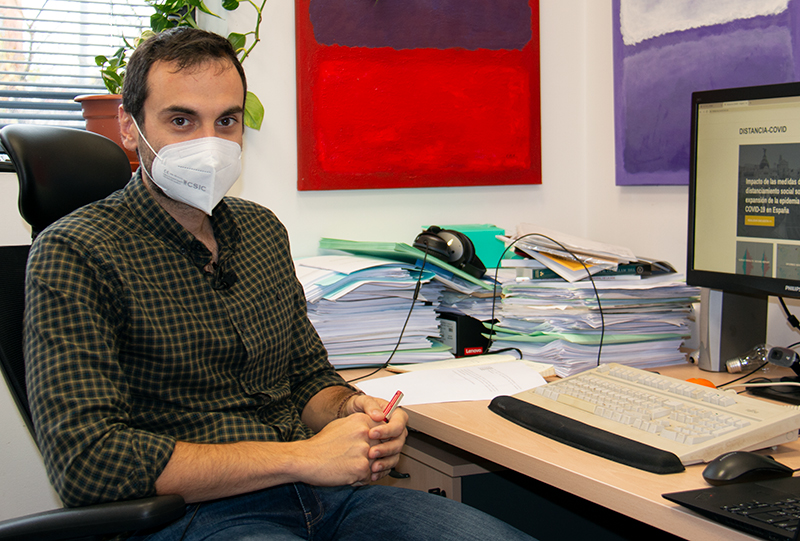
IFCA is working on a risk map of the incidence of Covid19 in the population of Cantabria.
The project has obtained funding of 19,800 euros from the regional government.
1st December 2020
The Instituto de Física de Cantabria (CSIC-UC) is working on the development of a risk map on exposure and incidence of Covid19 in the population of Cantabria, for which it will use anonymous data on the mobility of the inhabitants of the different municipalities. Applying data science and statistical techniques, the researchers María Castrillo, Álvaro López and Lara Lloret from the Advanced Computing and eScience Group will generate a dynamic tool for epidemiological surveillance, available to the authorities for decision-making in the case of future outbreaks.
The project, entitled "Prediction of the risk of exposure and incidence of the Covid19 disease in the population", has achieved a funding of 19.800 euros within the framework of the call for Promotion of Knowledge Transfer launched by the Consejería de Universidades, Igualdad, Cultura and Deporte of the Gobierno de Cantabria, in which two other IBBTEC projects have been selected. The risk map will be transferred to the Dirección General of Transformación Digital of the Consejería de Sanidad.
As Álvaro López explains, the objective is to "characterize the incidence by municipality and the impact of the disease with respect to the socio-demographic characteristics of each one of them". It is based on the fact that there are groups that are particularly vulnerable to Covid19 -over 60 years old, people diagnosed with high blood pressure, diabetes, chronic cardiovascular and pulmonary diseases, cancer and immunodeficiencies, and pregnant women due to the precautionary principle-, and also that both mobility and risk factors are not distributed homogeneously throughout the territory.
UNEVEN EVOLUTION
The mobility data has been obtained from the cell phone operators thanks to the participation of IFCA in the project "Distancia Covid", of the CSIC's Global Health thematic platform and financed by this organization and AENA, in which the impact of social distancing measures on the evolution of the pandemic is studied. To this information is added that provided by the Consejería de Sanidad of the Gobierno de Cantabria: incidence with municipal resolution and by age groups and sex, and Population Stratification of Risks in Cantabria by basic health areas, according to age groups and previous pathologies.
"Throughout these months, the evolution in Cantabria has been uneven, with very affected municipalities and others with no or very low incidence (about twenty have not had cases); what we intend to do is develop a tool that helps the authorities make more informed decisions to see what measures are necessary, if they can be anticipated, etc.", says López.
The study will last one year, and is now in the phase of analyzing data collected since March 15. To consult them, an application will be made that scientists will try to launch as soon as possible, so that managers can use it while working on its improvement and the possible incorporation of other sets of data. "It will not be a static map or document, but a tool that can be updated", points out Álvaro López.
News on the website of the Universidad de Cantabria: https://web.unican.es/noticias/Paginas/2020/diciembre_2020/IFCA-mapa-riesgos-incidencia-Covid19-Cantabria.aspx
